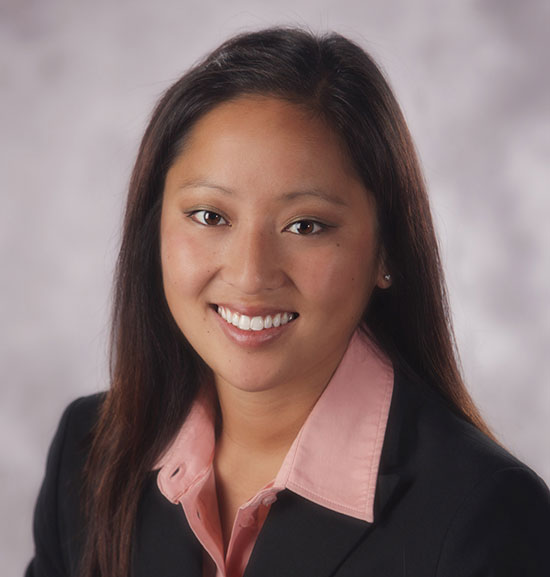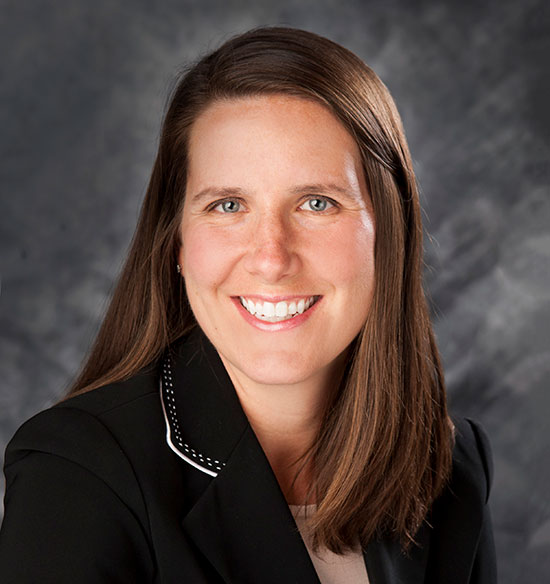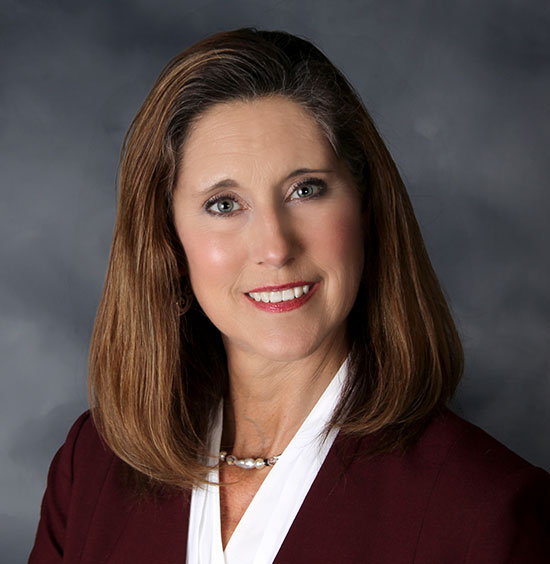
Law firms of all sizes are concerned about the growing threat of hackers seeking to breach confidential client data. They are increasingly investing in training, information technology (IT) infrastructure, and testing to ensure their systems can withstand or recover from large-scale attacks.
Attracting and retaining skilled legal talent in a strong economy presents another real challenge for law firms, particularly those outside Madison and Milwaukee. On the flip side, a good economy means a job market with more opportunities for lawyers. Firm managers continue to adapt compensation and firm policies to accommodate new and lateral hires. Smaller firms are reviewing current workloads and determining how to gain greater efficiencies.
The practice of law is cyclical – because the economy is cyclical – and anticipating where consumer demand will be in the next five or 10 years is key to a law firm’s growth. As the consumer marketplace evolves, demands unfold for legal services in new ways for those paying attention.
Areas of Law Gaining Traction
So, the million-dollar question: What are the “hot” areas of law? David Lat, founding editor of the Above the Law news site, if forced to answer the question, sums it up on one word: Privacy. “There’s a great future in privacy law. Think about it.”
A quick scan of legal industry news results in some obvious findings. Intellectual property because of the growth in technology. Healthcare and elder law because of the aging baby-boomers and the services they will require. Climate change opens the door for environmental law lawyers, particularly with growing interest in sustainability and increasing regulation. Industry experts see a continued demand in the increasingly complex area of labor and employment law. The explosive growth of e-discovery means new roles in litigation support and trial technology. What about blockchain and its application to contractual and other legal work?
Legalized marijuana is a rapidly growing industry, as an increasing number of states regulate its use for medical and recreational use. And, as Jeffrey Glazer explains later, the 2018 federal farm bill approved hemp as a federally recognized agricultural product for the first time. What does this mean for the regulation of hemp and the growing demand for CBD oil?

"We’ve seen huge increases in the number of clients asking about hemp growing and hemp processing licenses." – Jeffrey M. Glazer, Madison
A Big Boom for Food and Beverage Law
Food and beverage law practice is experiencing a big boom in Wisconsin. “Firms that didn’t have a food and beverage practice are starting to define those areas of practice within their firms and designating one or two attorneys to practice in these areas,” says Madison attorney Jeffrey M. Glazer. Glazer is an assistant clinical professor for the U.W. Law and Entrepreneurship Clinic and a partner with Ogden Glazer + Schafer, which focuses on business, food and beverage, and intellectual property law.
Glazer credits the growth of food and beverage law to “the current economics of agriculture, with farms seeking to restructure debt and transition from fully agricultural spaces, to partially agricultural and partially production.” As a result, “farms are retooling to include some sort of production or value-added capacity.”
What's Hot, What's Not Nationally
See “What’s Hot, What’s Not: National Practice Trends 2019” for a national perspective on these practice trends.
The farm bill (also called the Agriculture Improvement Act of 2018) signed into law in December approved hemp as a federally recognized agricultural product for the first time. “As a result, the state is scrambling to create laws and regulations around large-scale hemp cultivation and processing; banks are scrambling to figure out how to loan for hemp cultivation and processing; and farmers and agricultural processors are scrambling to get licenses and find markets for the product,” says Glazer. Hemp and its derivatives such as cannabidiol (CBD) oil are in high demand. “We’ve seen huge increases in the number of clients asking about hemp growing and hemp processing licenses.”
“Wisconsin lines up really nicely with some trends that are happening across the country concerning the localization and regionalization of economies. To facilitate that localization, you need to have a de-commodified supply chain, meaning that local products need to be distinguished from products originating elsewhere in the country,” Glazer says. Adding to that strength is Wisconsin’s greater concentration of smaller family farms.
Glazer cites statistics from the Census of Agriculture, produced by the U.S. Department of Agriculture: “Approximately 32.8 percent of all farms in Wisconsin are either small or midsize. The U.S. average is 26.3 percent for these professional farms. Small is defined as less than $350,000 in gross revenue; midsize is defined as less than $1 million in gross revenue. If you add in retirement farms and farms where the principal occupation is ‘off farm,’ the number jumps to 94.2 percent (Wisconsin) versus 93.8 percent (U.S.). There are other states that have a higher percentage of these kinds of small nonprofessional farms. The big farming states are almost entirely midsize and large farms.”
The shifting trends in food and beverage law have changed the landscape for businesses. “In the past,” Glazer says, “farms would grow products and sell those products to later-stage producers. The products would be commodified with [those from] other farms and sold together. Consumers are now starting to inquire where the products are grown and want to eat local products.”
Glazer connects this to another Wisconsin trend – the growth in agritourism. Consumers are demanding more local experiences. “Let’s take, for example, an apple orchard,” says Glazer. “The orchard may have land for growing, but the producer also sees an opportunity to expand operations for people to pick apples, make their own favorite apple product, and perhaps even an on-farm taproom where people can drink hard apple cider.”
Glazer recommends that food and beverage law lawyers look not only to clients as potential referral sources but also to other attorneys who may need to refer a client or arrange for co-counsel representation in a matter. As local producers seek to retain more profits by selling locally, providing experiences, and selling their materials at different stages (for example, from an apple on a tree to apple cider), their businesses will naturally expand. The addition of new business strategies and territories comes with the increased need for lawyers who know production regulations, labeling laws, and intellectual property.

"Consumers continue to use credit, and household debt continues to rise. These factors, along with the uncertain economic outlook, likely mean an increase in bankruptcy filings." – Jennifer M. Schank, Middleton
Bankruptcy Law: An Uptick in Filings in 2019?
“Chapter 12 bankruptcy filings by farmers have been on the rise because smaller sized family farms are struggling to compete with larger or corporate-owned farms,” says Jennifer M. Schank, a bankruptcy and insolvency law attorney with Fuhrman & Dodge S.C., Middleton. Smaller farms are slowly being phased out because, unlike larger farms, they cannot always overcome price fluctuations in commodities prices. And, some individuals want to exit farming altogether.
“Farmers have had to battle low crop and livestock prices for several consecutive years,” says Schank. “This creates a snowball effect for struggling farms because lower prices mean less cash flow and decreased ability to obtain loans, and more debt.”
Tell Us!
What changes in your practice area are you anticipating in the coming year? Post a comment below or email us at wislawmag@wisbar.org.
Retail businesses face their own sets of challenges due to the increasing number of consumers purchasing exclusively online. The increase in online shopping and the struggles of storefront businesses are apparent as various big-box stores file Chapter 11 bankruptcies. “It is likely that struggling businesses are using credit, and if they can’t keep up with e-commerce competitors, they will be forced to close their businesses or restructure debt,” Schank says.
Schank advises those considering debtor-creditor law to prepare for the expected ebb and flow of a bankruptcy practice. When the economy is doing well and bankruptcy filings are down, complementary practice areas like litigation, business, and real estate pair well with this type of practice.
Many “do-it-yourself” consumers, with ready access to the internet, think they can successfully file bankruptcy cases themselves. However, “bankruptcy is a specialized area of the law that requires a skilled attorney to review the debtor’s individual situation and determine the best course of action,” Schank comments.
On the flip side, technology has improved client communication and increased practice efficiencies. “Clients now can log in to portals to track payments to the bankruptcy trustee or determine the status of their case,” says Schank. “They can also provide documents or financial information directly to their attorneys. Advances in bankruptcy software also make it easier for attorneys to quickly populate client information into bankruptcy schedules.”
Schank predicts an uptick in bankruptcy filings in 2019. “Student loan debt continues to be a contributing factor. Although student loans are generally not dischargeable, an individual may need to file bankruptcy to eliminate their other debts to pay their student loans. Consumers continue to use credit, and household debt continues to rise. These factors, along with the uncertain economic outlook, likely mean an increase in bankruptcy filings.”

"A lot of new dealerships are emerging nationwide and, with that, more stakeholders in the distribution chain." – Christopher K. Flowers, Milwaukee
Dealership Law and Artificial Intelligence
“When I first started practicing in this area, I was told that dealership litigation was once a hot trending practice area given the wide reach of the Wisconsin Fair Dealership Law, but that it had lost steam,” says Christopher K. Flowers of Godfrey & Kahn S.C., Milwaukee. Flowers practices commercial litigation, including dealership and distribution-related litigation and counseling.
“However, in the past two years, I’ve seen the number of dealership matters really pick up,” Flowers says. He credits the uptick, including establishing and terminating dealers nationwide, to the strong economy for manufacturers, the increased number of business ventures and acquisitions, and the fact that companies are looking to expand their operations.
“A lot of new dealerships are emerging nationwide and, with that, more stakeholders in the distribution chain,” Flowers notes. Increased business transactions result in a greater need for representation in these practice areas. In fact, when Flowers first began practicing, dealership matters comprised about 25 percent of his practice, and now he estimates that it is closer to 75 percent.
A key aspect of Godfrey & Kahn’s response to the increase in dealership matters and other growing practice areas is continually investing in improved artificial intelligence (AI) systems, especially as it relates to electronic discovery.
“From a civil litigation standpoint, processing electronic discovery is time-extensive and costly. In order to reduce costs to clients and increase efficiencies for attorneys, large firms need to continue improving their ESI databases and increasing their investments in AI software, and technology generally. The reality is that our competitors are becoming more digitally savvy. However, any increase in technology must also be balanced with the overarching need to protect sensitive client information and to comply with the rules of professional conduct,” Flowers notes.
“As the mechanisms and tools we use to litigate and practice law generally become automated, we must continue to be mindful of our ethical obligations to clients and the bar. We must properly train new attorneys,” Flowers says. “The younger lawyers at my firm receive ongoing training and guidance on litigation concerns, the law firm’s duty of care as it relates to privacy matters and other ethical issues, and safeguards attorneys can employ.”
Indeed, attorneys processing e-discovery should keep in mind comment 8 to SCR 20:1.1: “To maintain the requisite knowledge and skill, a lawyer should keep abreast of changes in the law and its practice, including the benefits and risks associated with relevant technology, engage in continuing study and education and comply with all continuing legal education requirements to which the lawyer is subject.”
“For 2019 trends in Wisconsin, I think we will continue to see the expansion of dealership-related transactions and corresponding disputes, as well as AI’s impact not only on commercial litigation cases but also on our clients’ businesses,” Flowers says.
He adds that the quality of a firm’s attorneys and infrastructure are apparent to clients. Without proper investment and development, firms may be unable to ride the wave of change.

"Our biggest challenge is making sure that we are up to speed on whatever the newest trends are with cybersecurity and always making sure our technology is up to date." – Christine A. Rasmussen, Baldwin
Everything IT
How does a law firm stay on top of growing security threats from outside sources and serve its ongoing IT needs?
“By staying current on security threats,” says Michael J. Eichacker, IT services manager for Ruder Ware LLSC. “Security threats get hotter and hotter each year, because there are more known breaches or attempts that are happening, with the biggest threat being phishing attacks.” Eichacker oversees the firm’s IT infrastructure, network, internet connections, and virtual networks, for 95 staff members in three locations in Wausau, Eau Claire, and Green Bay.
Phishing attacks are one of the most common cybersecurity incidents faced by law firms, he explains. These attacks attempt to gain access to sensitive law firm data. According to Eichacker, a phishing attack occurs “when a hacker sends an email and someone within the firm clicks on it, and the hacker either redirects the click to a website, convinces the victim to upload something, or infects the victim’s computer (attempting to take over the machine, make it a soldier for attacks on other machines, or get access to the machine’s network).”
To combat intrusive threats, Eichacker advises investing in a firewall, spam filters, patching devices, and antivirus and malware software.
“A spam filter attempts to keep either nuisance or malicious emails out of your system completely,” says Eichacker, “and a firewall keeps people from randomly coming into your system. A firewall is like a lock on your interior door, and the spam filter is the person outside of the door that keeps people from accessing the interior door. The next layer of protection is to make sure that your devices are patched with updates.” The final layer is to ensure that computers have current antivirus and malware protection.
“Even if you have the best security system in the world, if you have click-happy users, they are going to get you in trouble,” Eichacker cautions. He recommends investing in security awareness training and testing for employees. “We subscribe to a service that tests our users to see if they are clicking on links and emails when they shouldn’t be.”
If all lines of defense fail, firms should have isolated backup systems that are regularly tested. “Having a connected device serving as a backup can be ineffective, as some viruses will seek out and infect all connected devices.”
“I recommend firms have isolated backup systems that are not always connected to their systems,” Eichacker says. A cost-effective measure is cloud backup. “That way the backup is off-site, and the virus can’t get to the data.” He also recommends lawyers test their backup systems regularly to help ensure the systems can be relied on when needed.
Eichacker urges lawyers “to not be the low-hanging fruit for hackers.” When accessing information outside the office, avoid using public WiFi. Instead, access information securely by using virtual private networks (also called VPNs) and secure websites and using only trusted internet sources. In addition, lawyers and their staff should use encrypted devices and have the ability to wipe their data remotely from devices that have been or may be compromised.
Clients expect law firms to have industry standards in place and employ or contract with certified IT professionals, he says. Because clients often retain law firms with more sophisticated systems, tout your commitment to industry security standards in your marketing efforts.
Eichacker urges smaller firms to find industry experts to provide IT and security support. Ask for references and vet vendors to determine whether they provide adequate services. Look to see whether the vendors have been the subject of known data breaches or other issues.
“Stay current on threats by reading the weekly posts on the State Bar of Wisconsin’s Practice411 elist. It’s nice to have a resource that aggregates the information into one place that I can share with my firm,” Eichacker says.

"Even if you have the best security system in the world, if you have click-happy users, they are going to get you in trouble." – Michael J. Eichacker, Wausau
Managing a Small-firm Practice
Dealing with the increasing complexities of technology is a significant concern for solo and small-firm practitioners.
“Our biggest challenge is making sure that we are up to speed on whatever the newest trends are with cybersecurity, spam emails, understanding and protecting against data breach concerns, and always making sure our technology is up to date,” says Christine A. Rasmussen, co-owner of Valley Crossing Law in Baldwin. The firm employs three support staff and practices probate and trust administration, estate planning, business, and real estate law.
Rasmussen recommends preparing or reviewing cybersecurity checklists and giving your firm a practice management tune-up. “We want to make sure that we address any and all known concerns and that we are doing the things we are supposed to be doing, like changing our passwords regularly, not clicking on suspicious emails, regularly training our staff on current threats, and backing up all of our work, and that we are following the advice and guidance of IT professionals,” Rasmussen says.
Small-firm practitioners also struggle with determining the appropriate scale of IT infrastructure and the level of cybersecurity insurance to invest in. “We do not ignore red flags or risks,” says Rasmussen, “but since we do not have the resources of a large firm, we need to be strategic where we put our resources.”
In the year ahead, Rasmussen says small firms must keep an eye on costs, increase internal firm efficiencies, and react appropriately to technology changes. Rasmussen suggests involving staff in generating a game plan. Work together to determine ways to be more efficient. Look at budgets from previous years and at revenue projections for the upcoming year to determine where you will receive the highest return on investment. Rasmussen finds the State Bar of Wisconsin’s Solo/Small Firm & General Practice Section and its electronic list a valuable resource for staying informed and learning best practices from other small-firm lawyers and practice experts.
Rasmussen’s final advice: Spend less time on administrative tasks. “Do not be the lawyer that has to complete every task. Delegate administrative tasks. Focus on revenue-generating areas of the practice, such as the actual practice of law,” she says. Outsource other functions of running a small practice, such as tax and payroll services. And, make use of your law practice management software.

"Now the market is very good, and people coming out of law school know what they want. What we are finding is that folks are more focused on the lifestyle that goes along with the job." – Christine A. Gimber, Eau Claire
Hiring and Retaining Attorney Talent in a Strong Economy
Recruiting and retaining attorney talent in a booming economy is challenging, especially if your law firm is located in northwest Wisconsin. In addition to competing with the Madison, Milwaukee, and Twin Cities area job markets, law firms there compete with each other and other area employers.
 Christopher C. Shattuck, Univ. of La Verne College of Law 2009, M.B.A. U.W.-Oshkosh 2015, is manager of Practice411™, the State Bar’s law practice assistance program. If you have questions about the business aspects of your practice, call (800) 957-4670.
Christopher C. Shattuck, Univ. of La Verne College of Law 2009, M.B.A. U.W.-Oshkosh 2015, is manager of Practice411™, the State Bar’s law practice assistance program. If you have questions about the business aspects of your practice, call (800) 957-4670.
We asked Christine A. Gimber, former managing partner of Weld Riley S.C. in Eau Claire, how her firm attracts lawyers to less populous areas of the state. The firm employs 30 lawyers in four locations in Black River Falls, Eau Claire, Menomonie, and Wausau.
“It has changed over the years. When I came out of law school in 1992, you were happy to have a job,” says Gimber. “Now the market is very good, and people coming out of law school know what they want. What we are finding is that folks are more focused on the lifestyle that goes along with the job.”
When considering a relocation, job candidates take a good look at the community. Married lawyers also want to make sure a location is a place where their spouse can find a job and they can raise a family, says Gimber. Potential hires also want an active community, where exciting events are taking place.
“The lifestyle in Eau Claire offers so much, with the music scene, community activities, the university, and employment opportunities, that the community’s popularity has made it easier to attract new hires.” The lower cost of living in northwestern Wisconsin gives new lawyers a way to pay down student loan debt.
“New attorneys are investments for our firm and local community,” says Gimber. “We do not place exceedingly high expectations on attorneys to generate substantial revenues in the first few years. Rather, we expect that new attorneys take time to learn the practice of law and integrate with the community, so that they can be example attorneys and community leaders in the future.”
To stay current on compensation packages, Gimber reads surveys and publications, including the State Bar of Wisconsin’s Economics of Law Practice in Wisconsin 2017 Survey Report. Gimber also finds the career services and on-campus interview staff at law schools to be particularly helpful in providing feedback concerning expectations. Some potential hires are open about their expectations or pending offers from other firms.
To retain legal talent, Gimber recommends firms adapt to meet employee needs. Recent law school graduates want to work in more collaborative environments. Technology also plays a role, because attorneys with varying years of experience use technology differently on varying devices, and in different locations. Attorneys who work extensive hours like to have the ability to work from home. Gimber’s firm has modified policies to accommodate the preferred work style of its employees and afford them flexibility to take time from work to attend family events.
Mentoring also is important, says Gimber. Firms that foster an environment of growth and development are more likely to retain lawyers. “At our firm, any attorney can walk down the hallway and sit with another attorney to ask for help or guidance on a particular area of law. Without that encouragement and guidance, we feel people might become frustrated and seek employment elsewhere,” Gimber says.
In the coming year, Gimber recommends firms focus on enhancing benefit packages and firm culture. Listening to employee needs and responding to current market pay rates can help retain and attract new talent. In the long term, focus on improving your communities. That, in turn, will make them more attractive for relocation.
Conclusion
Make 2019 the year for you and your practice. Take stock of your career, where your practice is headed. Look at your law firm’s business and marketing plan, financial picture, IT infrastructure, and personnel policies, and create a plan to make your law firm more efficient and profitable. Keep an eye on marketplace trends for new opportunities to serve consumer needs. Assess your work-life balance. If it’s not where you’d like it to be, decide what you need to do differently.
Finally, stay connected. Take advantage of the many resources available to you through your State Bar membership. Join a section. Participate in an electronic list. Attend a local bar meeting. Reach out to the State Bar for confidential consultations on practice management, ethics, and lawyer wellness issues.
The Practice411 electronic list is open to all State Bar members as well as IT professionals, office administrators, approved staff members, and members of partner organizations, such as the Wisconsin Association of Legal Administrators. To join, visit www.wisbar.org/Practice411elist.
